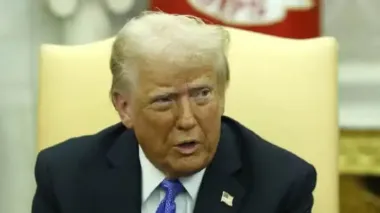US court declares Trump's global tariffs invalid — what's the point

Trump's global tariffs ruled illegal
The corresponding decision was unanimously adopted by a panel of three judges of the US Court of International Trade in Manhattan on May 28.
The judge's ruling gave the Trump administration 10 days to "comply" with the order, but it did not provide any specific guidance on what steps it should take to roll back the tariffs.
The order addresses Trump's global fixed tariff, increased rates for China and other countries, and fentanyl-related duties for China, Canada and Mexico.
That is, the judges declared invalid Trump's decrees, in particular, on the introduction of a 25% tariff on goods from Mexico and Canada, a 20% tariff on Chinese imports, a 10% tariff on imports from all US trading partners, and "reciprocal" tariffs from 20% to 50% on products from 60 countries (they were supposed to take effect on July 9) were canceled.
It is noted that other tariffs imposed by various authorities, such as the so-called "Section 232" and "Section 301" fees, remain unchanged (they include tariffs on steel, aluminum, and automobiles).
The US Department of Justice has already filed an appeal with the US Court of Appeals for the Federal Circuit.
As Western media are reporting, the US Supreme Court may have the "final say" in a high-stakes case that could affect trillions of dollars in global trade.
The ruling currently blocks the tariffs unless there is a move from the appeals court allowing the Trump administration to reinstate the tariffs during the trial.
US stock index futures jumped after the court's decision, with Nasdaq 100 index contracts up 2.1%.
Bloomberg also writes that the dollar has strengthened, while the yen has fallen.
The judges rejected the US government's argument that Trump had the authority to unilaterally impose tariffs under a law aimed at financial transactions during national emergencies.
The verdict was a so-called "summary judgment," which meant a final victory for the plaintiffs in a lower court without the need for a trial, Bloomberg notes.
Meanwhile, the judges said that during the hearings, Trump's lawyers said the intention was to "pressure" other countries to make better deals.
The government's "pressure" argument effectively acknowledges that the direct impact of tariffs on a particular country is simply to burden the countries they target, wrote the panel, which includes one judge appointed by Trump, one judge appointed by Barack Obama and one by Ronald Reagan.
White House spokesman Kush Desai, reacting to the verdict, said that "unelected judges should not decide how to properly act in an emergency."
Ultimately, the panel of judges concluded that Trump's initial executive order announcing global tariffs, and the subsequent order for additional levies from countries that retaliated, exceeded the US president's authority under the emergency law.










